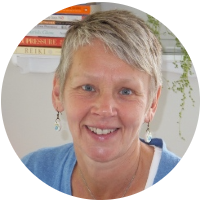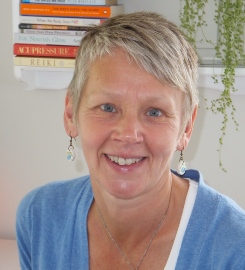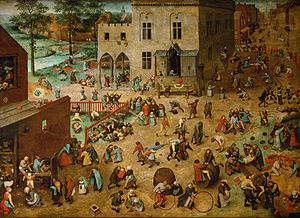Why do play and rest matter?
Play and rest are essential. When we play we are in touch with our senses and our life force. We are alive, open, imaginative and creative and see infinite possibilities. Rest is restorative and supports us to function properly. This article will explore both.
Play Across the Life-Cycle
Take a moment and imagine a scene of play. What do you see? For many of us we imagine a scene of children at play. Yet play is vital for all ages. In Children’s Games a painting by Pieter Breguhel in 1560 there are 124 different forms of play. Children, youth and adults are actively involved in play with, e.g. hoops, doing handstands or leapfrog.
If you have lost touch with play in your life I invite you to remember. Take a moment, turn the clock back and look at a time in your childhood when you were playing. A time when you were completely absorbed… Where were you? What were you doing? Who was around you? What was the impact of your play? Reconnecting with how we most liked to play can support us to know where to put our attention in the present as we bring play back into our lives. Have fun!
Productivity as Self-Worth
“I’m too busy to…” How often have you thought/said that? I used to think and say it all the time because my sense of self-worth had become collapsed with being as productive as I could. The impact was that I became exhausted and then neglected my need for rest and play. Exhaustion can be a status symbol, only when we are exhausted does it mean we have worked hard. Rest and play can be regarded as a waste of time, or ‘for slackers’.
We need rest and play in order to live and love fully and making the choice to play and rest can be a choice that is counterculture. It takes courage and compassion to choose both and when we connect with others who are making that choice we are supported.
Where do you get your sense of self-worth from?
Why does play matter?
In Play is more than just fun play researcher Stuart Brown explains that play is vital. Brown proposes 7 ingredients of play: it must be apparently purposeless, voluntary, and possess inherent attraction, freedom from time, a diminished awareness of self, improvisational potential, and a desire to continue.
Brown proposes that we have a biological drive to play and explains that, in the animal kingdom, those who play the best survive the best. Play moulds our brain, helps us to grow empathy, find our way in social groups and is the foundation of creativity and innovation. It allows pretend rehearsal for the challenges of life, and increased social skills. In fact, play makes us smarter. There is a positive link between brain size/frontal cortex development and play. During play, the brain engages in ‘simulations’ and creates connections that did not exist before. Brown draws on the biology of “neoteny” to explain human primacy among mammals: we spend longer as children, therefore play longer and are therefore smarter.
Just as sleep deprivation leads to ill health, so play deficiency can lead to emotional depletion and ill health. Play can counteract depression; continuing play can prevent its recurrence.
How can play serve you?
State of Play
In his Ted Talk, Stuart Brown shows a clip of polar bears playing with husky dogs and talks about a ‘state of play’, a way of being that is different to a state of attack, sleep, etc. Polar bears and dogs playing is another example of this state of play.
What are the gifts of being in a state of play?
Reunion
When we remember the part of us that knows how to play and bring that back into our lives it can be like a reunion, we reconnect with ourselves, like reconnecting with an old friend. It is a bit like the reunion between Jellybean, a donkey, and Mr G, a goat in this short clip.
Which parts of you are important to reconnect?
The Fun Theory
A few weeks ago I was talking with a reader of my newsletters about this month’s theme, around play. She shared how much she loved the short video clip I had once included about ‘The Slide’. Volkswagen initiated a site called The Fun Theory which seeks to explore whether fun is the easiest way to change people’s behaviour for the better. Take a few minutes to watch Fast Lane The Slide and see what impact fun has on the behaviour of these folk.
How do you cultivate play?
Rest
When we move from exhaustion as a status symbol we begin to allow rest. Sleep is no longer a luxury but a renewal. Jessa Gamble writes about sleep and time. In the short talk Our natural sleep pattern Jessa talks about the body’s internal clock and how this links to the rest we need.
Russell Foster studies sleep and its role in our lives. In Why do we sleep? he reveals that sleep is restorative and supports our brain to function better. He links the deprivation of sleep to poor memory, poor judgement and an increase in impulsivity. He explores the impact of stimulants on sleep and research that shows that sleep supports our emotional as well as physical wellbeing, e.g. sleep deprivation has been found to precede depression and other emotional states.
Arianna Huffington is a journalist. In How to succeed? Get more sleep she addresses a room of business women. She challenges them, and us, to reframe our belief that exhaustion is a status symbol and embrace sleep as a way to success.
Ingredients for Joy and Meaning
When things are going well for you, what does it look like? I invite you to take some time to answer that question, for yourself and/or with your partner or family. What did you discover? And I invite you to answer this question. What is your dream list? How do your answers compare? For many of us our responses are different. Our dream list may be full of things we have acquired or accomplished and both usually demand that we make and spend more money.
What do you choose?
The Six Senses
In his book A Whole New Mind author Daniel Pink says that a new world is emerging, founded on six abilities, what he calls “the six senses”: Design. Story. Symphony. Empathy. Play. Meaning. It is an interesting read that you may be curious to explore.
What do you choose?
Poetry Corner
Lucy Maud Montgomery, known as Maud, was best known for her book Anne of Green Gables published in 1908. She also wrote many poems. Here is one of them:
Come, Rest Awhile
Come, rest awhile, and let us idly stray
In glimmering valleys, cool and far away.
Come from the greedy mart, the troubled street,
And listen to the music, faint and sweet,
That echoes ever to a listening ear,
Unheard by those who will not pause to hear
The wayward chimes of memory’s pensive bells,
Wind-blown o’er misty hills and curtained dells.
One step aside and dewy buds unclose
The sweetness of the violet and the rose;
Song and romance still linger in the green,
Emblossomed ways by you so seldom seen,
And near at hand, would you but see them, lie
All lovely things beloved in days gone by.
You have forgotten what it is to smile
In your too busy life come, rest awhile.
And a poem by Anita Wadley:
Just Playing
When I’m building in the block area,
Please don’t say I’m “just playing.”
For you see, I’m learning as I play,
About balances and shapes.
Who knows, I may be an architect someday.
When I’m getting all dressed up,
Setting the table, caring for the babies,
Don’t get the idea I’m “just playing.”
For you see, I’m learning as I play;
I may be a mother or father someday.
When you see me up to my elbows in paint
Or standing at an easel,
Or molding and shaping clay,
Please don’t let me hear you say, “He is just playing.”
For you see, I’m learning as I play.
I’m expressing myself and being creative.
I may be an artist or an inventor someday.
When you see me sitting in a chair
“Reading” to an imaginary audience,
Please don’t laugh and think I’m “just playing.’
For you see, I’m learning as I play.
I may be a teacher someday.
When you see me combing the bushes for bugs,
Or packing my pockets with choice things I find,
Don’t pass it off as “just play.’
For you see, I’m learning as I play.
I may be a scientist someday.
When you see me engrossed in a puzzle
Or some ’plaything’ at my school,
Please don’t feel the time is wasted in ‘play.’
For you see, I’m learning as I play.
I’m learning to solve problems and concentrate.
I may be in business someday.
When you see me cooking or tasting foods,
Please don’t think that because I enjoy it,
It is ‘just play.’
I’m learning to follow direction and see differences.
I may be a cook someday.
When you see me learning to skip, hop,
Run and move my body,
Please don’t say I’m “just playing.”
For you see, I’m learning as I play.
I’m learning how my body works.
I may be a doctor, nurse or athlete someday.
When you ask me what I’ve done at school today,
And I say, ’I just played’,
Please don’t misunderstand me.
For you see, I’m learning as I play.
I’m learning to enjoy and be successful in my work.
I’m preparing for tomorrow.
Today, I am a child and my work is play.
References
Pieter Bruegel. Children’s Games 1560. From Wikipedia.org
Stuart Brown (2008). Play is more than fun. TED Talk
First Science.tv. Polar Bears and Dog Playing.
Andrew P. Street (2014). Goat and donkey reunion will brighten your day, video of Mr G and Jellybean. Stuff.co.nz
Thefuntheory.com
Thefuntheory.com. The Fast Slide
Jessa Gamble (2010). Our natural sleep cycle is nothing like we do now. TED Talk
Russell Foster (2013). Why do we sleep? TedGlobal 2013
Arianna Huffington (2010). How to succeed? get more sleep. TedWomen2010
Daniel H. Pink, A Whole New Mind, from www.danpink.com
Lucy Maud Montgomery, Come Rest Awhile. From www.poemhunter.com
Anita Wadley, Just Playing. From www.anitawadley.com
Article posted 13 May 2015

Sally Forman
Sally is a Certified Hakomi Therapist, Psychotherapist, Professional Certified Coach and Speaking Circles Facilitator, in private practice in Central Otago.



